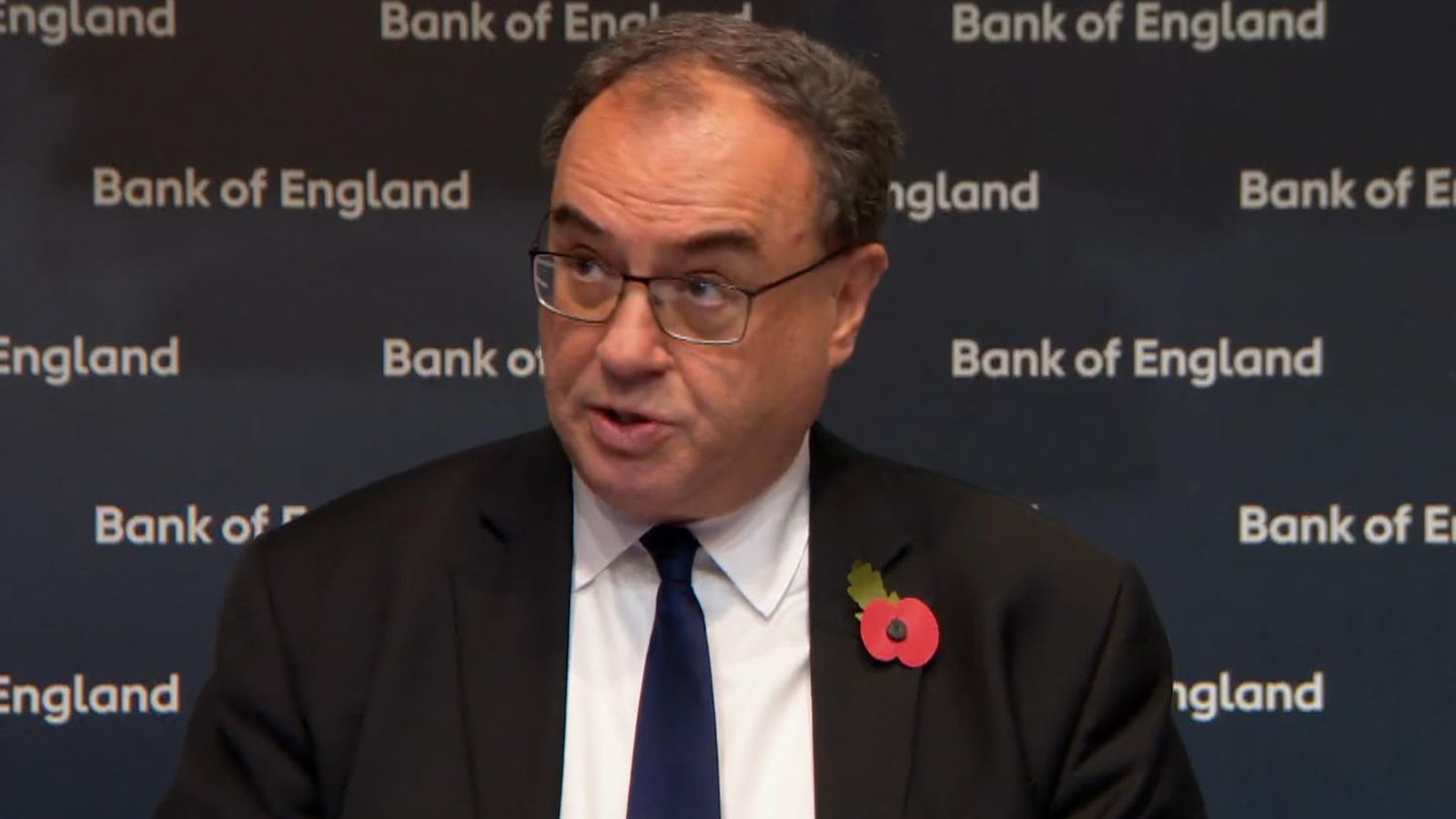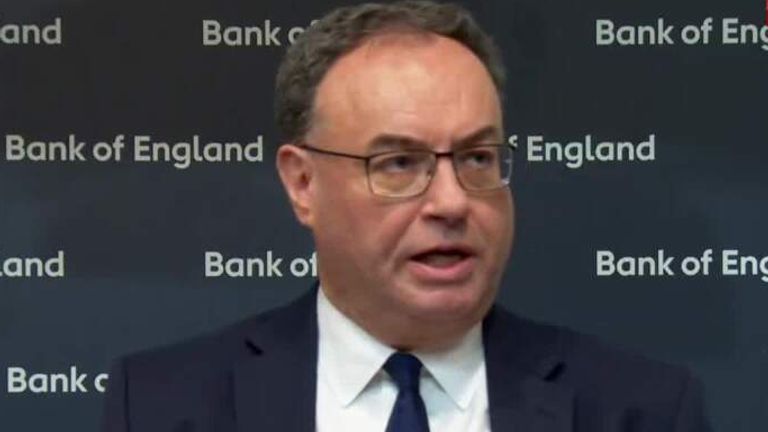Interest rates may rise less than previously thought with the governor of the Bank of England signalling there is no urgent need for hikes.
The central bank has been consistently raising interest rates – making borrowing more expensive – in an effort to bring double-digit inflation down to the Bank’s 2% target.
Further increases had been expected but comments from Mr Bailey indicate that may not be the case and the rate may stay at 4% for some time.
“At this stage, I would caution against suggesting either that we are done with increasing Bank rate, or that we will inevitably need to do more,” Mr Bailey said at a cost of living conference on Wednesday.
Further rises may “turn out to be appropriate”, he said, “but nothing is decided”.
Economic data – such as employment figures and the inflation rate – will inform the next decision on whether to keep raising rates. That decision will be announced by the Bank’s monetary policy committee on 23 March.
Read more:
Interest rates hiked by Bank of England by 0.5 percentage points
Higher risk of households defaulting on loans
So far, Mr Bailey said, the economy is “evolving much as we expected it to”.
“Inflation has been slightly weaker, and activity and wages slightly stronger, though I would emphasise ‘slightly’ in both cases.”
But Mr Bailey also warned that too little action on rates now could mean more hikes down the tracks.
“If we do too little with interest rates now, we will only have to do more later on”, he said. “The experience of the 1970s taught us that important lesson.”
Before Mr Bailey’s speech, markets had priced in a further 0.65 percentage points increase in the interest rate over the next three meetings in March, May and June.
No change in the rate is the most likely outcome of the March decision, economic research group Pantheon Macroeconomics said, but the chances of a 0.25 percentage points hike are around 40%.
“Either way, it is clear from Mr Bailey’s speech that (decision-making monetary policy) committee is placing more emphasis on the substantial tightening already delivered and would like to call time on its hiking cycle as soon as it feasibly can”, Pantheon said.

